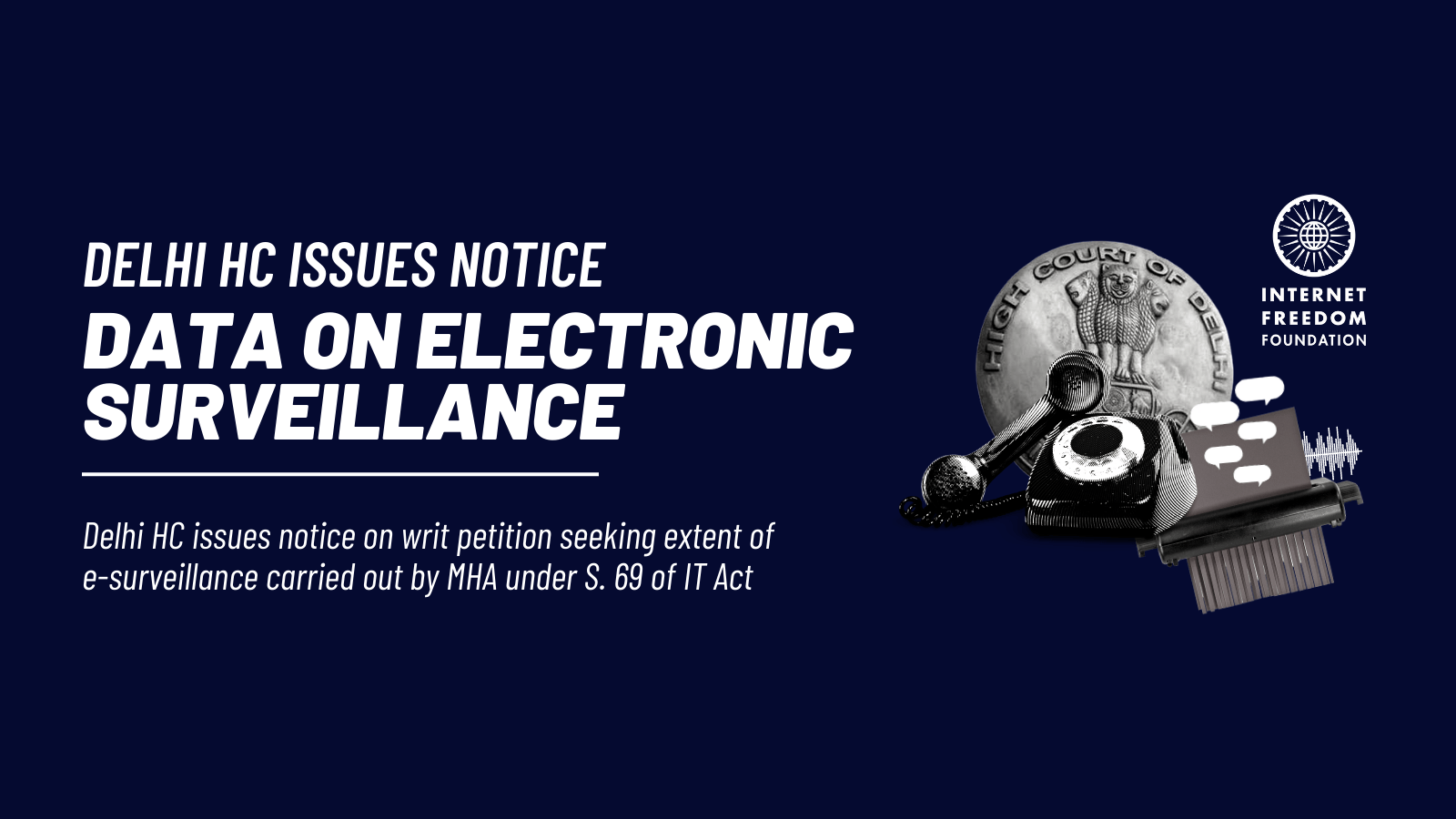
tl;dr
Since December 2018, we have been seeking information on e-surveillance by the Ministry of Home Affairs. Initially, it was denied for national security reasons. On appeal, it was denied again on grounds that minimal data was maintained, and that records are periodically destroyed. When we further appealed, the Chief Information Commissioner (CIC) held that the information wasn't maintained at all. We challenged the decision of the CIC in the Delhi High Court. The matter came up for hearing on 21.03.2023 and the court was pleased to issue notice.
Why should you care?
Section 69 of the Information Technology Act, 2000 (‘IT Act, 2000’) allows the government to intercept, monitor, and decrypt any information generated, transmitted, received, or stored in any computer resource. This grants the Central Government the power to conduct an all-around e-surveillance on citizens, even decrypting encrypted data on their devices.
To facilitate an informed discussion on the legality and practices of e-surveillance in India, it is important to know the total number of surveillance orders issued by the government. Six RTI applications were filed by us to obtain statistical data on the total number of e-surveillance orders issued in 2018 under Section 69 of the IT Act, but we are yet to receive the information.
Background
We have gone from pillar to post in order to get information on e-surveillance from the MHA. Here is a quick summary of the back-and-forth we have faced:
Proceedings before the Delhi High Court
On 28.03.2022, we filed a writ petition challenging the CIC Order on four grounds. First, we argued that the MHA is the custodian of the information we sought. Second, MHA and its officers have taken inconsistent positions during different stages of the proceedings. Third, we argued that the MHA cannot destroy the information sought by us while the RTI proceedings are ongoing. And, fourth, similar information has been provided by the MHA previously in similar RTI requests.
On 05.04.2022, the case was listed for the first time before Justice Yashwant Varma of the Delhi High Court. Senior Advocate Trideep Pias appeared on our behalf and pointed out a Standard Operating Procedure (‘SOP’) issued by the MHA which prescribes the procedure for storage and destruction of records relating to issuing of e-surveillance orders. The Court directed the counsel for the respondents to seek instructions on specific paragraphs of the SOP that pertain to the maintenance of e-surveillance records.
On 09.11.2022, the Respondents sought 3 weeks to file a response. On 20.03.2023, the respondents filed a counter affidavit reiterating their earlier stand.
The case was heard on 21.03.2023 by Justice Pratibha Singh, who was pleased to issue notice. The case will now be listed for final arguments in September 2023.
We are immensely grateful to Sr. Adv. Mr. Trideep Pais for his consistent guidance and leadership in this matter, and to IFF Of Counsel Ms. Vrinda Bhandari for leading the arguments. Ms. Bhandari was assisted by the IFF legal team, comprising Advocates Gautam Bhatia, Abhinav Sekhri, Tanmay Singh and Gayatri Malhotra.
Important Documents
- Counter Affidavit dated 20.03.2023 (link)
- Writ Petition in Apar Gupta v CPIO, MHA & Ors. (link)
- Order of the Delhi High Court dated 21.04.2022 (link)
- Previous blogpost titled “Delhi HC directs MHA to clarify its position on maintenance of e-surveillance data” (link)

